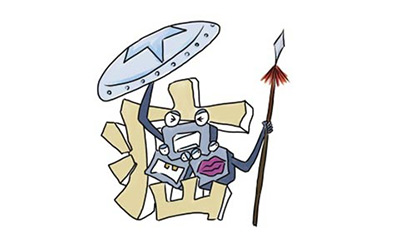维生素C联合抗生素,抗癌效果竟高达常规药物100倍!
| 导读 | 最新研究表明,维生素C与抗生素搭配使用竟然能起到远远高于常规临床药物的100倍并具有相对更小的毒副作用。 |

最新研究表明,维生素C与抗生素搭配使用竟然能起到远远高于常规临床药物的100倍并具有相对更小的毒副作用。
该研究对应论文发表于最新上线的Oncotarget杂志,题为“NADH autofluorescence, a new metabolic biomarker for cancer stem cells: Identification of Vitamin C and CAPE as natural products targeting “stemness”。
在这篇文章中,研究人员表示多西环素(doxycycline)与天然维生素C的配合使用能够有效地对肿瘤细胞的生长与分裂进行抑制,减少肿瘤细胞生长与分裂所必备的小分子“营养物质”,进而使肿瘤细胞“冻饿而死”。
其实早在今年三月,英国索尔福德大学研究人员就已经发现天然维生素C对癌细胞生长与分裂的抑制作用是常规临床癌症治疗药物2-脱氧-D-葡萄糖(2-DG)的10倍,而在这项最新的研究中,他们又发现当搭配多西环素使用时,天然维生素C竟然能以2-DG 100倍的效果对人乳腺癌细胞MCF7进行杀伤。
在这项研究的过程中,研究人员首先在人乳腺癌细胞MCF7的培养与分化过程中加入了多西环素。同时,研究人员也在实验进行的3个月中逐渐加大了多西环素的施加剂量。当肿瘤细胞生长至一定阶段后,研究人员便开始以天然维生素C来“喂养”这些肿瘤细胞。在试验的过程中,研究人员也对肿瘤细胞代谢过程中的NADH等生化指标进行了相应的实时监控。
受到来自维生素C影响,肿瘤细胞仅仅只能以葡萄糖作为唯一的能量来源。如此一来,虽然癌细胞仍然能够存活,但其新陈代谢的具体强度却遭到了严重的削弱。当研究人员切断肿瘤细胞的葡萄糖供应时,这些肿瘤细胞则会发生大量的快速死亡。
文章的通讯作者Michael P. Lisanti教授表示,“这项研究进一步证明了维生素C和其他无毒化合物对于癌症治疗的重要作用。这项研究具有广阔的临床前景,使得维生素C与抗生素的联合使用作为传统治疗方法的辅助方法为越来越多的科研人员和临床工作者所关注。相应治疗策略的应用在理论上可以防止癌症的复发、恶化以及转移,同时更具有相对更小的机体毒性。”
来源:
Oncotarget. doi: 10.18632/oncotarget.15400
NADH autofluorescence, a new metabolic biomarker for cancer stem cells: Identification of Vitamin C and CAPE as natural products targeting “stemness”
Abstract
Here, we assembled a broad molecular “tool-kit” to interrogate the role of metabolic heterogeneity in the propagation of cancer stem-like cells (CSCs). First, we subjected MCF7 cells to “metabolic fractionation” by flow cytometry, using fluorescent mitochondrial probes to detect PCG1α activity, as well ROS and hydrogen-peroxide (H2O2) production; NADH levels were also monitored by auto-fluorescence. Then, the various cell populations were functionally assessed for “stem cell activity”, using the mammosphere assay (3D-spheroids). Our results indicate that a sub-population of MCF7 cells, with increased PGC1α activity, high mitochondrial ROS/H2O2 production and high NADH levels, all form mammospheres with a higher efficiency. Thus, it appears that mitochondrial oxidative stress and the anti-oxidant response both contribute to the promotion of mitochondrial biogenesis and oxidative metabolism in CSCs. Further validation was provided by using specific inhibitors to target metabolic processes (the NAD+ salvage pathway, glycolysis, mitochondrial protein synthesis and OXPHOS), significantly reducing CSC propagation. As a consequence, we have now identified a variety of clinically-approved drugs (stiripentol), natural products (caffeic acid phenyl ester (CAPE), ascorbic acid, silibinin) and experimental pharmaceuticals (actinonin, FK866, 2-DG), that can be used to effectively inhibit CSC activity. We discuss the use of CAPE (derived from honey-bee propolis) and Vitamin C, as potential natural therapeutic modalities. In this context, Vitamin C was ∼10 times more potent than 2-DG for the targeting of CSCs. Similarly, stiripentol was between 50 to 100 times more potent than 2-DG.
Keywords: cancer stem-like cells, metabolic heterogeneity, metabolic cell fractionation, mitochondria, NADH
(转化医学网360zhyx.com)
 腾讯登录
腾讯登录









还没有人评论,赶快抢个沙发